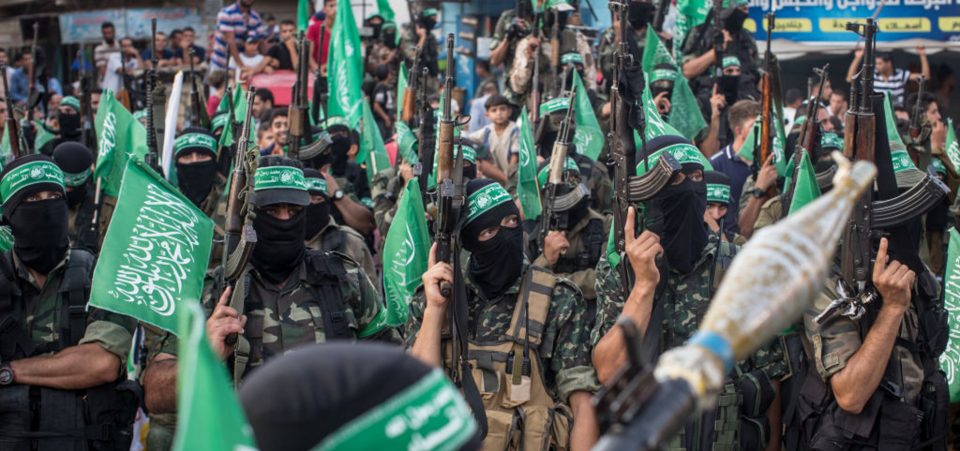U.S. Recognition of Jerusalem as the Israel Capital Could Trigger Intifada, Not Just a Day of Rage
Israeli security forces have declared a state of high alert. President Donald Trump formally recognize Jerusalem as Israel’s capital, angering Palestinians and millions of Muslims worldwide. Like clockwork, Hamas, the Palestinian movement that controls Gaza, has called for a “Day of Rage.” There have already been two Intifadas; moving the U.S. embassy to Jerusalem could spark the third and most violent Intifada yet.
Hamas leader Ismail Haniyeh described Trump’s decision as a “flagrant aggression.” (Source: “Palestinians call days of rage over US Jerusalem plan,” Al Jazeera, December 6, 2017.)
Palestinians were protesting, setting effigies of president Trump on fire, and burning flags even before the White House made an official announcement.
Trump’s decision has managed to reconcile Hamas and the Palestinian Authority, which dominates in the West Bank, led by Mahmoud Abbas. All Palestinians agree that Trump’s recognition of Jerusalem as the Israel capital city has broken any pieces that were left of the so-called peace process.
World Leaders Worried
The very idea that Trump would move ahead with such a decision has worried heads of state from Ankara to Beijing, to London, to Tehran. Trump seems to have taken this step without considering that the Middle East is already a region of precarious equilibriums. Trump has put pressure on the most delicate one, and with the full might of U.S. diplomacy.
There’s little chance for any balance to last now in what may well have been the most complex geopolitical issue for decades. Whatever degree of co-existence between Palestinians and Israelis had existed could crumble now.
The Israelis are prepared. Surely, Trump took the decision after discussing it with Israeli Prime Minister Benjamin Netanyahu and other officials.
Many expected that the demonstrations—which began on December 5 when the rumors of Trump’s Jerusalem decision had surfaced—to intensify after the U.S. president’s official statement on December 6.
But the Palestinian Authority and Hamas may still be genuinely shocked by Trump’s move. They will not be able to contain the anger that could burst out on the streets of Gaza and Ramallah. Their police and security forces might not be able to cope.
As for the Israeli security measures, both army and police have prepared to contain protest rallies, which are expected to build up near the current U.S. embassy in Tel Aviv. The Israeli military will also have a keen eye directed toward events in Gaza and parts of the West Bank. Protests and violence will likely culminate on December 8, which will be the main “Day of Rage.” It will be a Friday, so Muslim worshippers will also want to be going to the mosques on the Temple Mount.
The security forces may try to prevent access because corresponding demonstrations of support for Trump’s decision cannot be ruled out.
The Hamas leadership, which had previously assumed a tamer stance, agreeing to implement the unity agreement with the Palestinian Authority, appears to have ditched any semblance of moderation, noting that Palestinians will use any necessary means to protect their holy places.
Travel Advisories Issued Ahead of Potential New Intifada
Most foreign governments are expecting the protests to deteriorate into violence, and most foreign ministries—including those of Germany, France, the U.S., and the U.K.—have urged their citizens to take additional precautions if they are visiting Israel and the occupied territories, as many do around the Christmas period (Nazareth, Bethlehem are popular destinations this time of year).
Washington has gone as far as issuing a warning for government employees to stay away from the Old City of Jerusalem and the West Bank.
Oh, and it’s not just a Muslim reaction that most governments fear. On December 5, shortly after Trump called Mahmoud Abbas to inform him of the decision to move the U.S. embassy, it was Palestinian Christian demonstrators who burned Donald Trump’s effigies and shouted protest slogans.
Meanwhile, in Jordan, King Abdullah is also concerned, and tourists have been advised to take precautions there as well. He has spoken to France’s President Emmanuel Macron, who was among the most vociferous western leaders who spoke out against Trump’s embassy plans. It’s no wonder that France’s leadership is concerned.
France still maintains close ties to its Francophone and largely French-speaking colonies in North And West Africa, where the population is overwhelmingly Muslim. Jerusalem is considered the third-holiest site in Islam. It would be foolish not to expect repercussions for Trump’s decision there and among the Muslim population worldwide.






